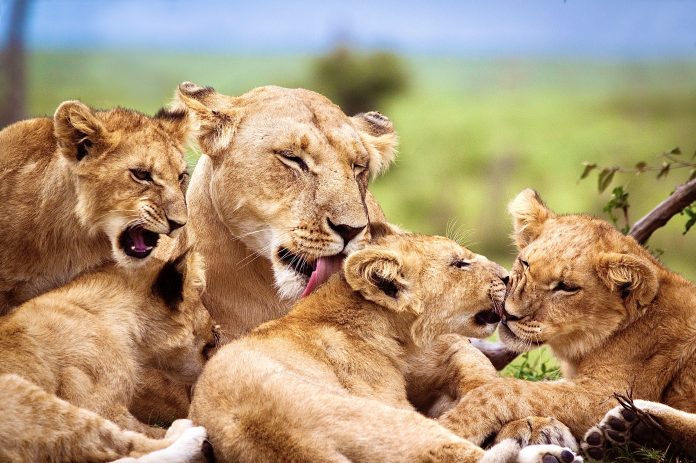
New Study Shows That Tourists Are Willing To Pay For A Total Ban On Trophy Hunting To Protect Wildlife In South Africa
You can help all animals and our planet by choosing compassion on your plate and in your glass. #GoVeg
RELATED ARTICLES
Banning Cruelty: New Legislation Aims To Ban Octopus Farming In The U.S.
New bipartisan legislation has just been introduced in the U.S. to ban commercial octopus farming and prohibit imports of farmed octopus from foreign countries.
The...
Outrage In Yellowstone! Grizzly Bear Killed By Wildlife Officials & Left With Head & Paws Cut Off
Photo by: Trisha McFarland / Cowboy State Daily
A photo of a dead grizzly bear with its head and paws cut off has caused an...
Inside Florida’s Illegal Horse Meat Trade: Undercover Footage Shows Racehorse Being Shot & Butchered
A heart-wrenching discovery of illegal horse slaughter has emerged, with video footage exposing the tragic killing of a racehorse named 'Funny Biz,' who was...
Popular stories
Breaking! Two Female Wolf Pups & One Yearling Were Killed By Hunters Outside Of Yellowstone; Take Action To End The Hunt Today!
The wolves in the photo are not the ones that were killed.
Wolf biologists from Yellowstone National Park reported yesterday that two female pups and one...
News
Urgent! Your Voice Is Needed TODAY To Help Save Two Members Of The Endangered Togo Wolf Pack Before They Are Killed Tomorrow In Washington
On Friday, the Washington Department of Fish and Wildlife (WDFW) issued a new order authorizing the killing of up to two members of the Togo...
News
Victory! Hawaiian Legislature Passes Seven New Animal Protection Laws Including A Ban On Killing Sharks In State Waters
Animal advocates across Hawaii are celebrating the close of a successful legislative year with the passage of seven new animal protection laws.
Most notably, the...


